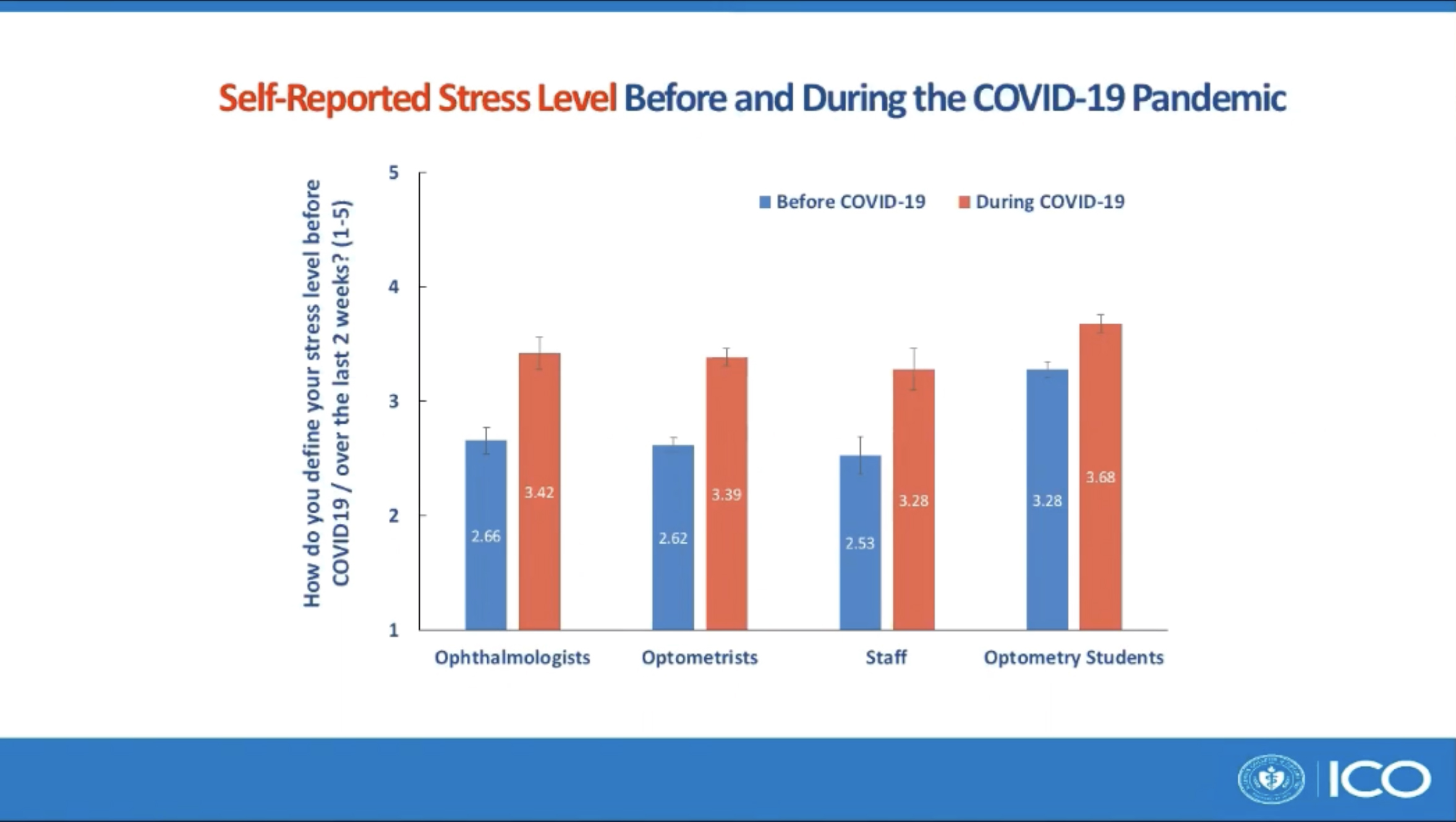A recent survey, presented at Academy at Home 2020, has demonstrated the impact that COVID-19 and its consequent challenges have had on the mental health of eye care practitioners, staff and optometry students. More than 60% of professionals and students reported that their mental health was worsening during the pandemic, and almost 40% reported symptoms of anxiety, depression or both during the pandemic. Researchers identified the top three factors that have negatively impacted mental health: (1) worries about family/friends being infected with COVID-19, (2) self-worry about being infected with COVID-19 and (3) social isolation. Study authors Yi Pang, OD, PhD, professor at the Illinois College of Optometry, and her student Connor Robbs, BS, shared their findings October 7, 2020 during a press conference, noting that outdoor activities, family time and exercise positively impacted mental health.
A 22-question survey was sent through social media and email to ophthalmologists, optometrists, staff and optometry students. The researchers collected data on demographics, stress level before and with COVID-19 (the last two weeks of data collected), positive and negative factors which impacted mental health by COVID-19 and screening questions for depression and anxiety. A total of 1,558 individuals (29.9% male and 69.2% female) from 49 US states (n=1,431) and Canada (n=127) responded to the survey, including 617 optometrists, 610 optometry students, 197 ophthalmologists and 134 eye care staff.
 |
| During Academy at Home 2020, Dr. Pang discussed survey findings that highlight the impact COVID-19 has on practitioners' wellbeing. |
Of the participants, 61.2% stated that COVID-19 had a negative impact on their mental health vs. 25.6% stating no impact and 13.2% stating a positive impact. The mean self-reported stress level increased significantly from 2.90 out of 5 before COVID-19 to 3.50 out of 5 with COVID-19. Before COVID-19, only 6.6% of the participants scored themselves at the highest stress level, which then increased to 21.9% with COVID-19. The study also noted that 21% of participants failed the depression screening questions and 34.7% failed the anxiety screening questions. Mr. Robbs noted that optometry students self-reported the highest stress levels before and during the pandemic among all groups.
Dr. Pang identified being a student, female, younger, Asian as well as the number of new daily COVID-19 cases in the state as risk factors for mental health disorders during the pandemic. Protective factors included more frequent interactions with patients and having a greater proportion of childcare responsibilities at home. “COVID-19 has had a negative mental health impact on two-thirds of those surveyed eye care practitioners, staff and optometry students, with self-reported stress levels having increased significantly,” Dr. Pang concluded.
Pang Y, Robbs C, MHOOS Study Group. Impact of COVID-19 pandemic on mental health in eye care practitioners, staff and optometry students. Presented at Academy at Home 2020, October 7, 2020. |

